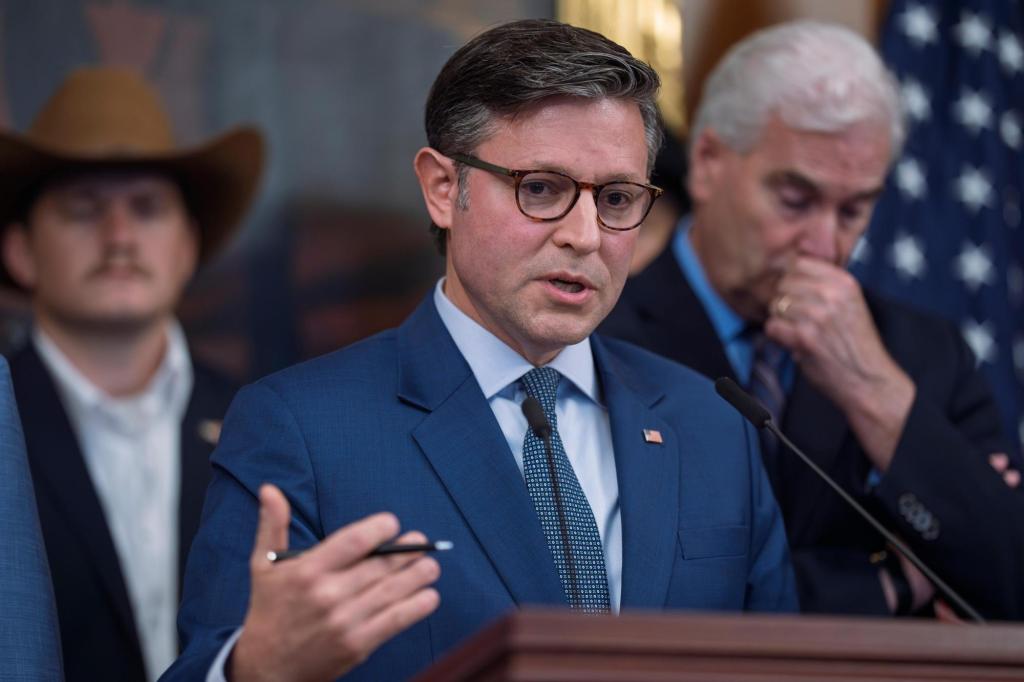
By KEVIN FREKING, Associated Press
WASHINGTON (AP) — House Republicans unveiled Tuesday a stopgap spending bill that would keep federal agencies funded through Nov. 21, daring Democrats to block it knowing that the fallout would likely be a partial government shutdown that would begin Oct. 1, the start of the new budget year.
The bill would generally fund agencies at current levels, with a few exceptions, including an extra $88 million to boost security for lawmakers and members of the Supreme Court and the executive branch. The proposed boost comes as lawmakers face an increasing number of personal threats, with their concerns heightened by last week’s assassination of conservative activist Charlie Kirk.
The House is expected to vote on the measure by Friday. Senate Majority Leader John Thune said he would prefer the Senate take it up this week as well. But any bill will need some Democratic support to advance through the Senate, and it’s unclear whether that will happen.
Senate Democratic leader Chuck Schumer and House Democratic leader Hakeem Jeffries have been asking their Republican counterparts for weeks for a meeting to negotiate on the bill, but they say that Republicans have refused. Any bill needs help from at least seven Democrats in the Senate to overcome procedural hurdles and advance to a final vote.
“They can try and play the blame game, but their actions tell a different story,” Schumer said. “Their actions show they clearly want to shut things down because they don’t want to negotiate with Democrats.”
Republicans say it’s Democrats who are playing politics by insisting on addressing health coverage concerns as part of any government funding bill. In past budget battles, it has been Republicans who’ve been willing to engage in shutdown threats as a way to focus attention on their priority demands. That was the situation during the nation’s longest shutdown, during the winter of 2018-19, when President Donald Trump was insisting on federal funds to build the U.S.-Mexico border wall.
This time, however, Democrats are facing intense pressure from their base of supporters to stand up to Trump. They have particularly focused on the potential for skyrocketing health care premiums for millions of Americans if Congress fails to extend enhanced subsidies, which many people use to buy insurance on the Affordable Care Act exchange. Those subsidies were put in place during the COVID crisis, but are set to expire.
Johnson called the debate over health insurance tax credits a December policy issue, not something that needs to be solved in September.
“It’ll be a clean, short-term continuing resolution, end of story,” Johnson told reporters. “And it’s interesting to me that some of the same Democrats who decried government shutdowns under President Biden appear to have no heartache whatsoever at walking our nation off that cliff right now. I hope they don’t.”
Originally Published:



